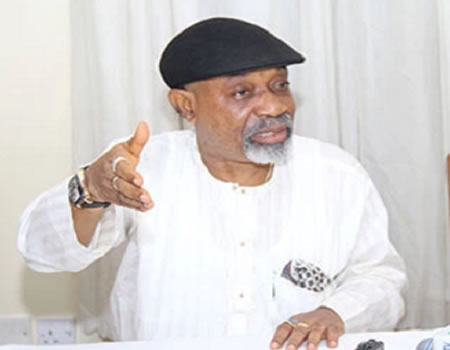
Minister of Labour and Productivity, Dr Chris Ngige, disclosed this while briefing State House corespondents on the outcome of the council meeting on Wednesday.
He said the approval was given based on the recommendations of a technical committee report which reviewed the country’s industrial relations, particularly in the public sector.
He said the 2016 technical report emphasized the need to implement the measure because it is neither a rule nor a policy but a law captured in Section 43 of the Trade Disputes Act of the Federation.
He said: “It says that workers have a right to disengage from an employer if there is a breakdown in discussions or negotiation. But for the period that the worker does so, the employer should not pay and those periods are to be counted as non-pensionable times in the period of work.
“So, Council today re-emphasized that that law is still ‘in situ’ and that it should be brought to the knowledge of workers in the public and private sector, especially those in the public sector.
“We have to do that because of the spate of industrial crises we have suffered in the last two months, when we had plethora of strikes all over the place.
“So, Council has said this should be re-emphasised to workers so that they will know.
“Meanwhile for the strike embarked upon the last time, we will see what we can do about that because there is a law in place.”
Ngige cited the International Labour Organisation (ILO) convention which he said recognizes the action, especially as it concerns those on essential services like doctors.
He said: “It permits the employer to get people in to work in such establishments on ad-hoc basis for the period that those workers have withdrawn their services.
“Overseas these laws are enforced, that is why when unions go on strike they pay them for the period they are on strike and they do so on checkoff dues. And is why strikes overseas last one, two days or highest 72 hours because the laws are clear and are not enforceable.”
He said the council was determined to checkmate workers who “are permanently doing union activities, they are presidents of trade unions for life and they sit tight.”
Ngige also disclosed that the Labour Ministry has been directed to fish out the unions that have no constitutions with prescribed time limit for their elected officers.
He said such unions should be made to comply with the law, so that people can be elected, they serve out their terms and other people will take their place.
The minister alleged that some union officials use their positions to avoid transfers, other work-related directives and duties.
He added: “Council also looked at part of the recommendation on Collective Bargaining Agreement (CBA): if an employer and employee have a dispute and the reconciliate.
“The product of reconciliation is the bargaining agreement. Most times, those agreements are not signed, they are usually signed by wrong persons.
“So, Council agreed with us that according to the labour laws, they should be signed and whenever issues of salaries and wages are involved, National Salaries, Income and Wages Commission must sign, the ministry of labour must sign and the document domiciled in the Ministry of Labour in consonant with Section 4 of the Trade Dispute Act.”





